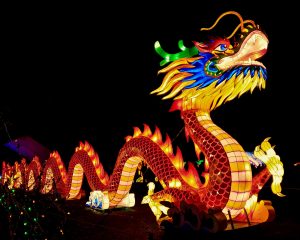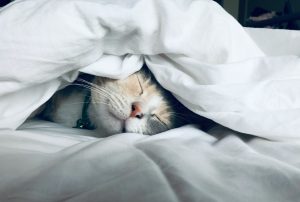 Happy Lunar New Year of the Yang Wood Dragon! Although I enjoy the psychological aspects of astrology very much, the forecasts and recommendations always land rather vague or obvious for me. I take them with the same grain of salt I do seven-day meteorological forecasts. For example, when Gemini is advised for the month to stop, rejuvenate, and take care of ourselves, I assign it about as much weight as I do when the News recommends I bring an umbrella next Tuesday.
Happy Lunar New Year of the Yang Wood Dragon! Although I enjoy the psychological aspects of astrology very much, the forecasts and recommendations always land rather vague or obvious for me. I take them with the same grain of salt I do seven-day meteorological forecasts. For example, when Gemini is advised for the month to stop, rejuvenate, and take care of ourselves, I assign it about as much weight as I do when the News recommends I bring an umbrella next Tuesday.
The dragon is the most revered animal sign in Chinese astrology, so much so that many Chinese families aim to procreate during these years. As an aside, I imagine this might lay groundwork for a child that feels intense pressure to succeed, between the apparently already competitive nature of their parents compounded by the overcrowded classrooms and job markets they likely find themselves in. Nevertheless, the dragon is considered powerful and brilliant, fortunate, and successful.
The wood element is a strong one as well, typically motivated, proactive, angry, and determined. It corresponds with the liver and gallbladder channels, the former of which is yin and responsible for storing our blood and nutrients and sending them to the central nervous system. The latter of which runs up the entire sides of our bodies and acts as “the pivot” between our yin (organ level) systems and yang (immunological and neurological) systems. Neither of these channels, to my understanding, have any direct connection to their biomedical organs of the same name.
Wood is a creative element, which means a year of the wood dragon is a good one to succeed in creative projects by way hard work. But honestly, what year isn’t?
I will share with you from https://www.thechinesezodiac.org/year-of-the-dragon/ that some of the most promising sectors for business this year are in solar energy, cybersecurity, and AI. In my opinion, this does bear systemic logic. We can think of the liver as acting as cybersecurity for our healthy body fluids, and the gallbladder as parallel to the pivot created by solar energy between the sun and our devices. Pretty cool.
Supposedly lucky numbers for this year are 8, 14, and 21, and the auspicious color is emerald green. So, if you have to choose a date for something like a job interview, a performance, or an IVF transfer, maybe you’ll choose the 8th, 14th, or 21st, and wear an emerald green piece of clothing or accessory for it. Although, an emerald green suit on a job interview is likely inadvisable, unless it’s an audition for Broadway or to act as a Disney park character.

 It’s nice to eat nice foods—expensive and high quality foods—organic foods, locally grown, homemade, etc. But it isn’t just about what we eat, but how we eat, that will maximize the conversion of our food into nutrients, which will convert into globally good health.
It’s nice to eat nice foods—expensive and high quality foods—organic foods, locally grown, homemade, etc. But it isn’t just about what we eat, but how we eat, that will maximize the conversion of our food into nutrients, which will convert into globally good health. Everyone has their achilles’ heel—even the most successful or effective clinicians—and one of mine, as I’ve discussed before, is insomnia. On the bright side, mine is not constitutional—I never struggled with sleep as a child or adolescent. Unfortunately, this means by around 30 years old I had created it myself, whether through stress or unhealthy lifestyle, surely with a dash of genetic predisposition. My family tends to be more manic and wiry than sluggish or lethargic, the former of which lends itself to an overactive “yang,” or sympathetic nervous system.
Everyone has their achilles’ heel—even the most successful or effective clinicians—and one of mine, as I’ve discussed before, is insomnia. On the bright side, mine is not constitutional—I never struggled with sleep as a child or adolescent. Unfortunately, this means by around 30 years old I had created it myself, whether through stress or unhealthy lifestyle, surely with a dash of genetic predisposition. My family tends to be more manic and wiry than sluggish or lethargic, the former of which lends itself to an overactive “yang,” or sympathetic nervous system.
 Welcome to the “Bitter Cold.” Holidays are over, New Year’s has passed, viral plagues have not, and single digit temperatures have arrived. Although we do not hibernate, nor could we, even if the more introverted of us might prefer to, in theory we should do so at this time. Instead, how can we compensate for the nature of the present climate?
Welcome to the “Bitter Cold.” Holidays are over, New Year’s has passed, viral plagues have not, and single digit temperatures have arrived. Although we do not hibernate, nor could we, even if the more introverted of us might prefer to, in theory we should do so at this time. Instead, how can we compensate for the nature of the present climate?